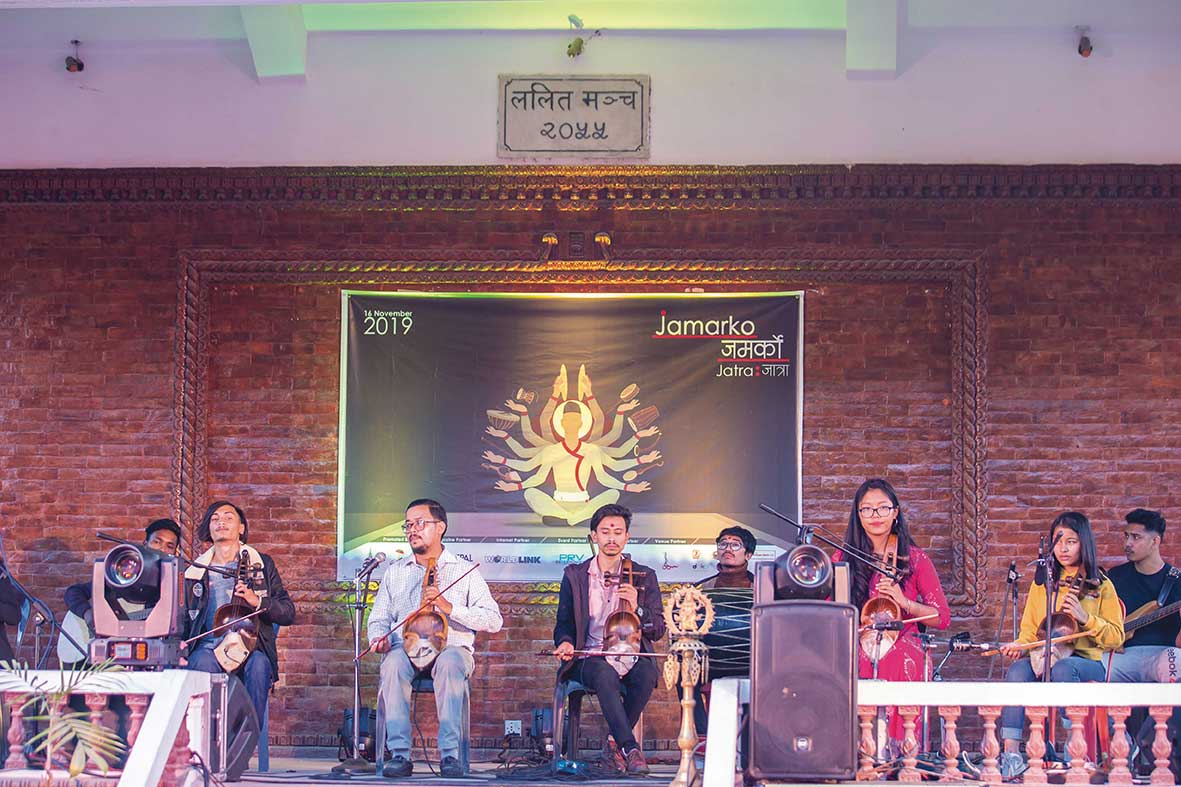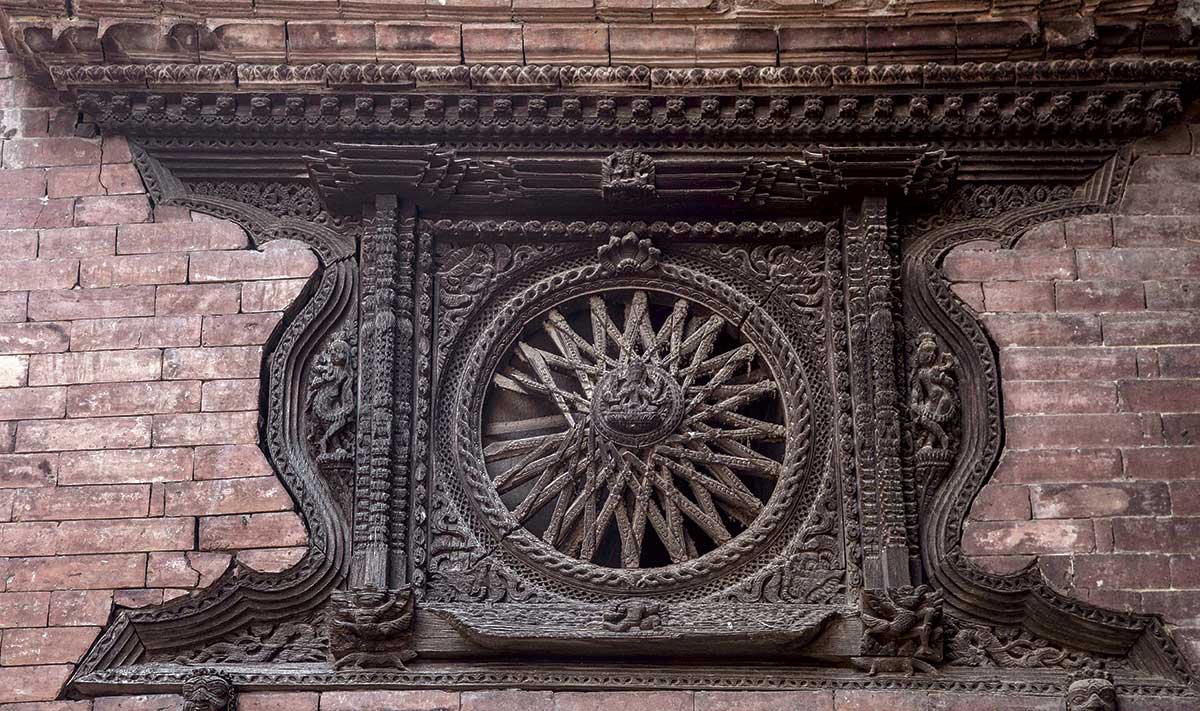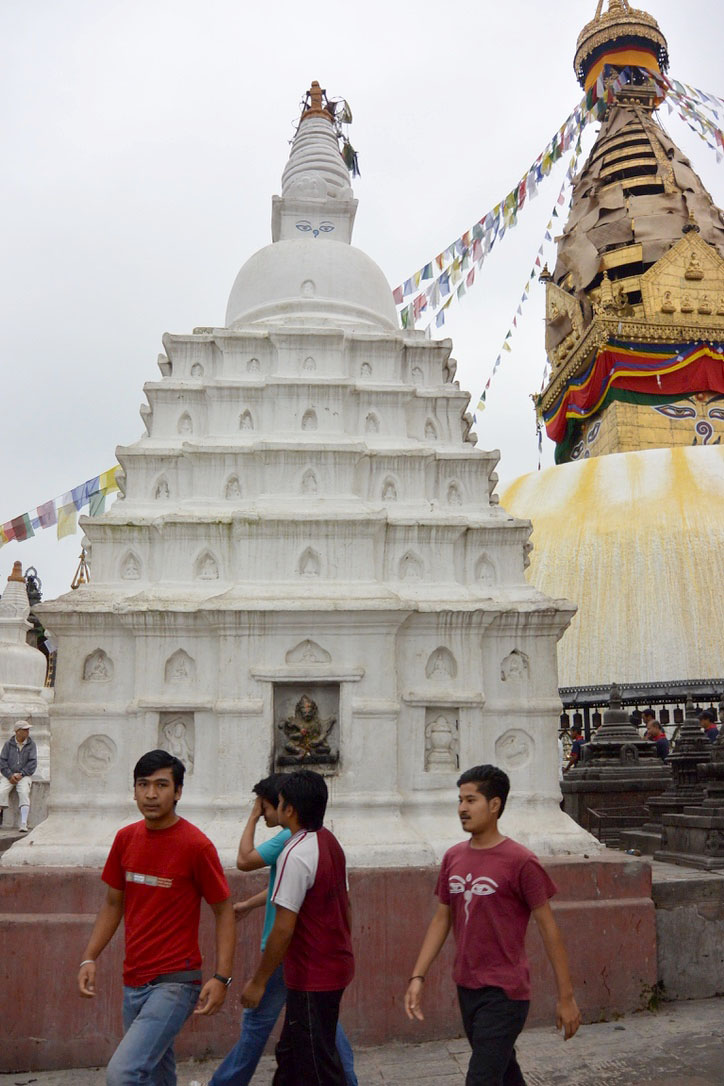This album commemorates the 50 years of diplomatic and friendly relations between Japan and Nepal. 2006 was celebrated as the 50th anniversary and there was no dearth of celebrations as it took many forms including art exhibitions, workshops, conferences and musical concerts. This occasion has brought together a Japanese sitarist and four Nepali classical musicians on a collaborative project to record an album. Shizuyo Shimmei was born in Chiba, Japan in 1974 to a family very much in love with music. Although trained as a pianist since the age of 6, she went on to learn the sitar in India and has been training since 2001. After meeting Gyanu Radha Gorkhali, a well-known Nepali sitarist, she moved to this country. She has been learning nepali music and classical ragas.
Achyut Ram Bhandari, a resident of Kathmandu is a university lecturer of the Fine Art College of Tribhuvan University. With many books on music under his belt, he has also played in many classical albums. He has toured Europe, USA, Hong Kong, India and Tibet as a tabla player. On this album he plays both the tabla and maadal. Ram Sharan Shrestha was born in Kupondol, Lalitpur. His sitar guru was Ganesh Bahadur Bhandari. Completing his Master’s Degree from Illahabad in India, he has received many prestigious awards and stood first in the 34th National Classical Music Contest. In this album he plays Nepali and Newari folk tunes as well as classical ragas. Sushil Gautam was born in Dhital, Pokhara and was inspired by his grandfather who chanted bhajans (devotional songs). He took lessons in playing the sarangee from Khim Bahadur Gandharba. He has spent much time organizing folk musical events, conducting research and teaching folk music instruments. He also plays the murchunga (jewish harp).
The album starts with the title track “Atithi” which is symbolic as ‘Atithi Devo Vaba’ means ‘Guests are Gods’ a popular saying in Nepali. The music is simple and anyone could enjoy listening to it. ‘Mangal’ is dedicated to Lord Vishnu whose ten incarnations are described in the Mangal song. This melody is usually played at the beginning of any event or ceremony to ensure successful completion. “Resham Firiri” as mentioned many times before is a tune that is irresistible and anybody playing folk is somehow compelled to play it. Here however, criticism must be put aside, as this particular tune is hugely popular among the Japanese people and there is no way Shizuyo can avoid playing it. “Malasiri’ is a devotional song dedicated to Goddess Durga. A lively tune played in praise of Durga’s victory over Maishasur, the demon. The album ends in a happy note, ‘Basanta’ taken from a Newari song that welcomes the spring along with the New Year. A good mix of folk and classical, this album is for light listening and you need not be a music buff to enjoy it.
CD Courtesy: East Meets West Music Box, Thamel, Ph: 4256411.

Jamarko: A Mesmerizing, Musical Mosaic
Music has existed since the dawn of humankind. It knows no language, no caste, no boundaries. Music isn’t...










